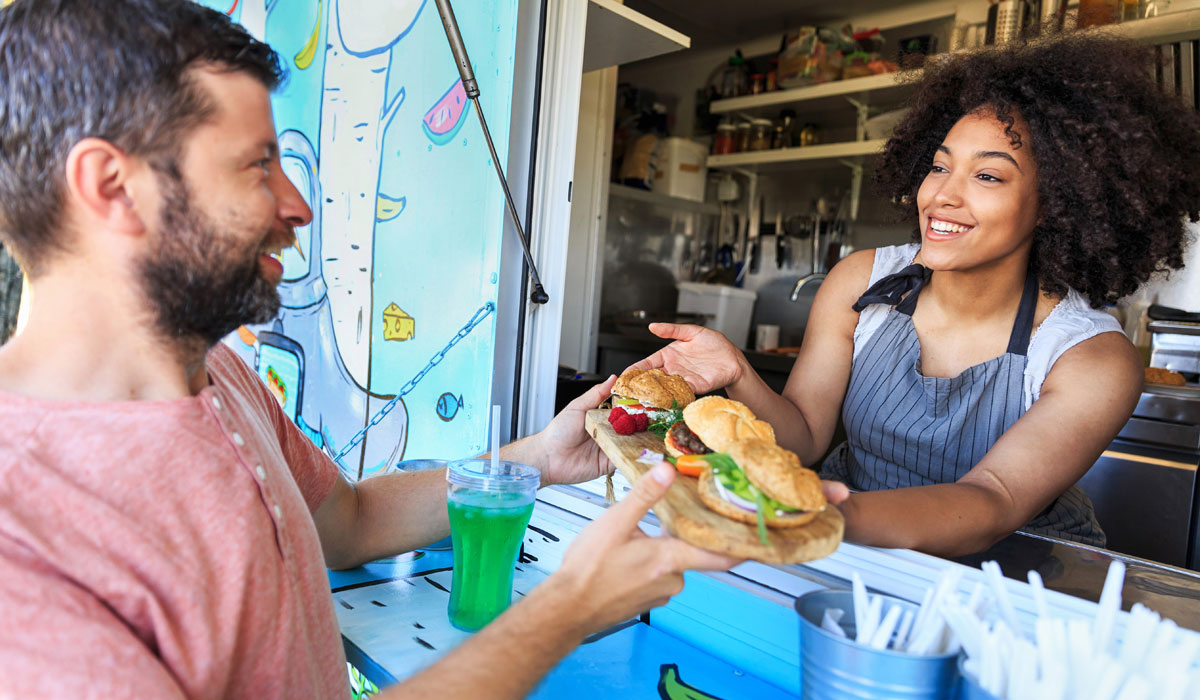Several months into the ongoing COVID-19 pandemic, it’d be easy to look out on the food and beverage space and immediately think “doom and gloom.”
Chuck E. Cheese has filed for bankruptcy. Dave & Busters and The Cheesecake Factory have had to reach out for cash lifelines to keep their operations afloat, to the tune of $100 million and $200 million, respectively. Even Dunkin—recently ranked by Entrepreneur as the No. 1 franchise based on brand strength, financial stability, and other factors—has announced the closure of 450 locations located within Speedway gas stations by the end of 2020.
Clearly, the pandemic and its associated lockdowns have thrown up some pretty heavy headwinds for bars and restaurants. And yet, in spite of all the challenges, there are pockets of opportunity out there.
While not all franchises are doing great, there are some that have weathered the storm just fine. And if you’re a franchisee who’s been doing decently, now’s the time to expand, not retrench. The smart approach is to view the glass as half full and start making some aggressive plays.
If you have a franchise that has actually managed to sustain itself over the past few months, why wouldn’t you consider doubling down on that investment? You might be making less margin than you were making pre-COVID-19, but if you can still make money in this screwball scenario, you can make money in any scenario.
In fact, if you’re more than just covering your bills but actually turning a profit, why not boast that fact to the landlords in the spots where you want to be, that you’ve had your eye on as potential expansion opportunities? You know: the very competitive spots that you’d normally end up overpaying for just to be there?
If you go to the landlord and kindly direct their attention to the fact that you haven’t had to shutter and are actually still flourishing during this time, they might be very interested in cutting you a deal. This goes doubly so if the franchise that had previously expressed interest in that hot location is currently struggling or doing the Chapter 11 two-step.
In addition to doubling down, now’s a great time to diversify. If you have a couple coffee franchises, look into purchasing some burger drive-thru locations that have been holding up well over the past couple months. If you have some donut shops, consider purchasing some smoothie bars that have consistently been generating revenue. Build on your operations. Bolt on some other businesses that will help your overall economic picture.
Lest you think this is a crackpot idea in such uncertain economic times, look no further than Uber, which recently paid a cool $2.65 billion to acquire Postmates. Uber understands the value of finding complementary businesses to add to its operations.
So, what are next steps for franchisees or entrepreneurs who are ready to take a swing, either by doubling down or by diversifying, if they don’t have a ton of free capital lying around?
One option is to reach out to private equity firms. These firms are currently sitting on a record amount of “dry powder”—nearly $2.5 trillion of uninvested cash that is on the sidelines, waiting to be deployed. In many cases, there are rules and restrictions around how long these firms can hold onto cash without investing it, so as their deadlines creep ever closer, they’ll be highly motivated to find ways to deploy that capital.
Don’t be intimidated by the thought of approaching these firms or think that they’ll be reluctant to give you money. Like any financial institution, there are differing degrees of difficulty depending on how much capital you’re looking for. Getting your hands on an amount in the $5-15 million range is easier than getting your hands on an amount in the $20 million-or-above range, and getting your hands on an amount in the $300,000 to $1.5 million range is easier still.
The good news is, even that lowest range is enough to pick up a franchise or two. And franchisors are going to want to work with you and get creative if you’re looking to be bold and pick up a sizable number of franchises.
For example, if you’re looking to open up three franchises within a 6–12 month timespan, the franchisor should be open to providing incentives based on how quickly you’re able to open the locations.
This might mean a graduated scale for franchise fees: open all three locations within six months, and you only pay one franchise fee; open all three within nine months, and you only pay 1.5 franchise fees; and so on. Similarly, royalty fees could be structured so that if all locations are opened up within a certain aggressive timeline, the royalty fees for the first three months are only 2 percent instead of 4-6 percent.
Make no mistake: the public health impact and economic fallout of the COVID-19 pandemic has been a real beast. But there’s opportunity out there.
For entrepreneurial-minded individuals, now’s not the time to be timid. It’s time to take a swing at opportunity, and grab a piece of the upside.
James Vitrano is Chief Development Officer of Fat Tuesday, a bar concept established in 1983. Danny Cattan is Director of Global Franchise Development at Fat Tuesday.










